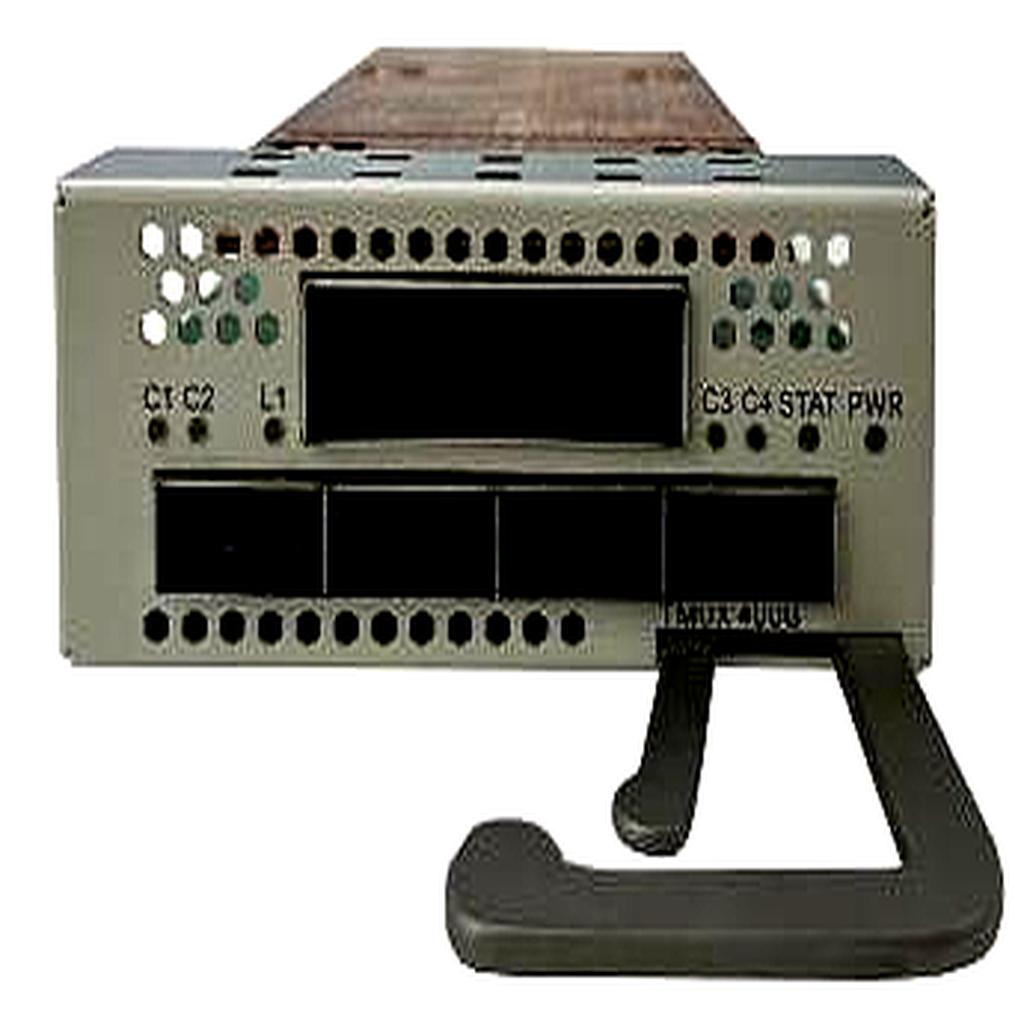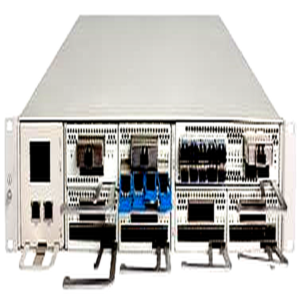This board supports a maximum capacity of 4100G bidirectional or unidirectional transmission, making it highly efficient for large-scale data transfer. It operates across a wide wavelength range in the DWDM spectrum and supports various modulation schemes such as DP-QPSK and DP-16QAM. The board’s advanced line-side protocols, including OpenROADM and SCFEC, ensure reliable and high-quality transmission. With robust environmental tolerances and compliance with major safety standards, the 4100G 400G TMUX Board is a versatile and reliable component for modern optical communication systems.
Product Overview:
- The 4*100G 400G TMUX Board is designed for high-capacity data transmission in dense wavelength-division multiplexing (DWDM) systems. It offers efficient data multiplexing and supports multiple modulation modes, making it ideal for high-performance optical networks.
Description:
- This board supports a maximum capacity of 4100G bidirectional or unidirectional transmission, making it highly efficient for large-scale data transfer. It operates across a wide wavelength range in the DWDM spectrum and supports various modulation schemes such as DP-QPSK and DP-16QAM. The board’s advanced line-side protocols, including OpenROADM and SCFEC, ensure reliable and high-quality transmission. With robust environmental tolerances and compliance with major safety standards, the 4100G 400G TMUX Board is a versatile and reliable component for modern optical communication systems.
Key Features:
- High-capacity transmission up to 4*100G
- Support for multiple modulation modes (DP-QPSK, DP-16QAM)
- Wide wavelength range in the DWDM spectrum
- Advanced line-side protocols for reliable transmission
- Robust environmental tolerances and safety compliance
Maximum Capacity per Board:
- Capable of handling 4100G bidirectional transmission or 4100G unidirectional transmission, providing flexibility in data flow management.
Wavelength Range:
- DWDM (Dense Wavelength Division Multiplexing) range from 1529.16nm to 1567.14nm (191.3THz-196.05THz), supporting high-capacity data transmission over multiple wavelengths.
Modulation Mode:
- Supports multiple modulation formats including DP-QPSK@100G, DP-16QAM@200G, DP-8QAM@200G, DP-QPSK@200G, DP-8QAM@300G, and DP-16QAM@400G. These modulation techniques enhance spectral efficiency and data transmission rates.
Protocols:
- Compatible with OpenROADM, OpenZR+, and SCFEC protocols, ensuring interoperability with a wide range of network equipment and configurations.
Dispersion Tolerance:
- ±40000ps/nm@100G, providing robust performance in the presence of chromatic dispersion, which is critical for long-distance data transmission.
OSNR Tolerance:
- <11.5dB@100G DP-QPSK
- <18.5dB@200G DP-8QAM
- <21.5dB@200G DP-16QAM
- <14dB@200G DP-QPSK
Service Access Types:
- Supports 100GE, 100GE KR4, OTU4, and 100G FlexE, providing flexibility in connecting various network services and ensuring high compatibility with different data formats.
Dimensions:
- Measures 86(W) × 40(H) × 210(D) mm, making it a compact and space-efficient solution for high-capacity data transmission.
Environmental Requirements:
- Operating Temperature: -5℃ to 45℃
- Storage Temperature: -40℃ to 80℃
- Humidity: 5% to 95% non-condensing
Power Consumption:
- Operates with a power consumption of less than 80W, ensuring energy efficiency while delivering high performance.






